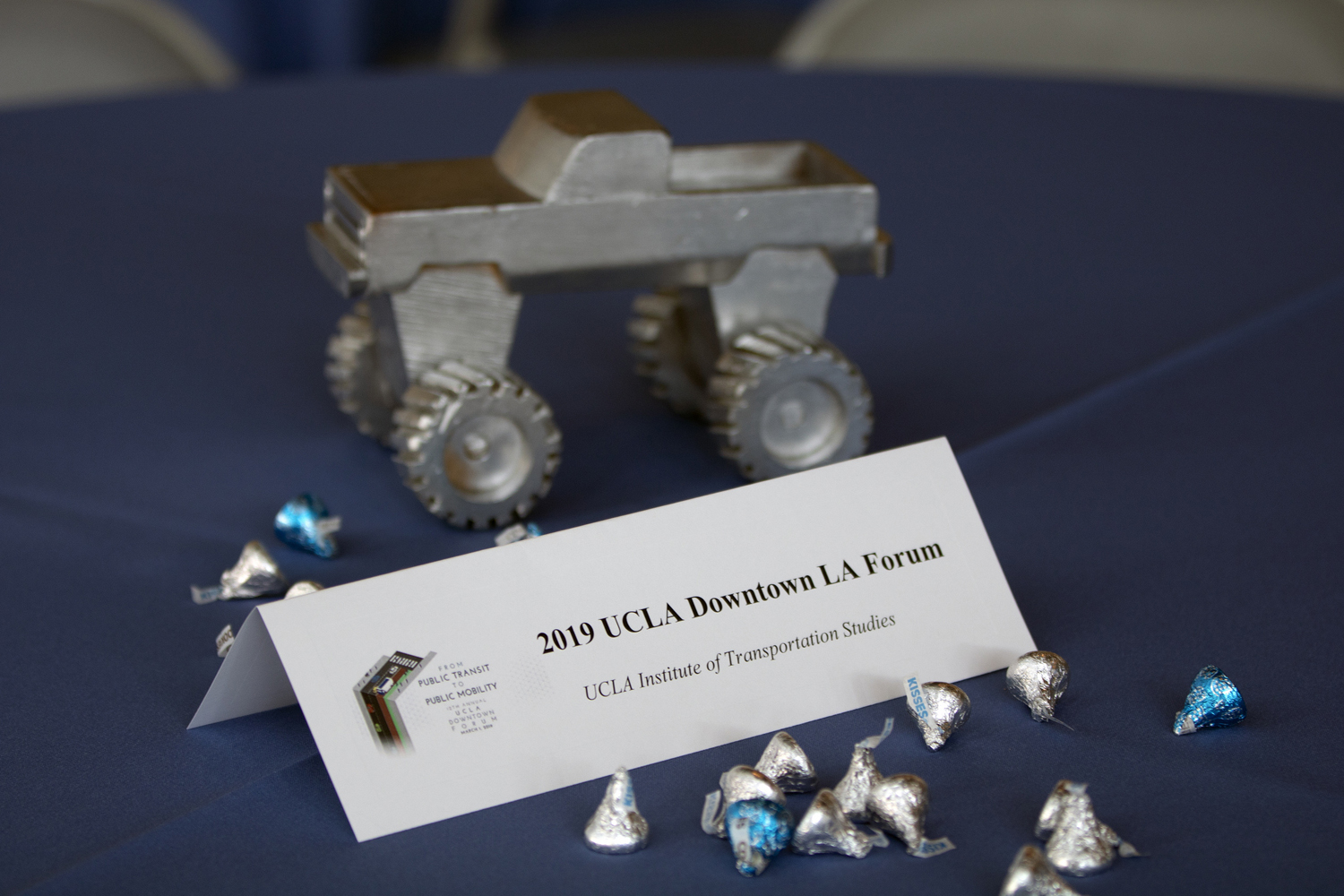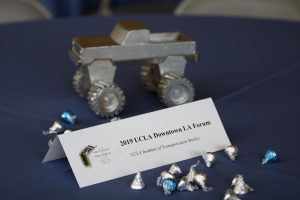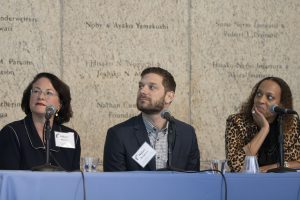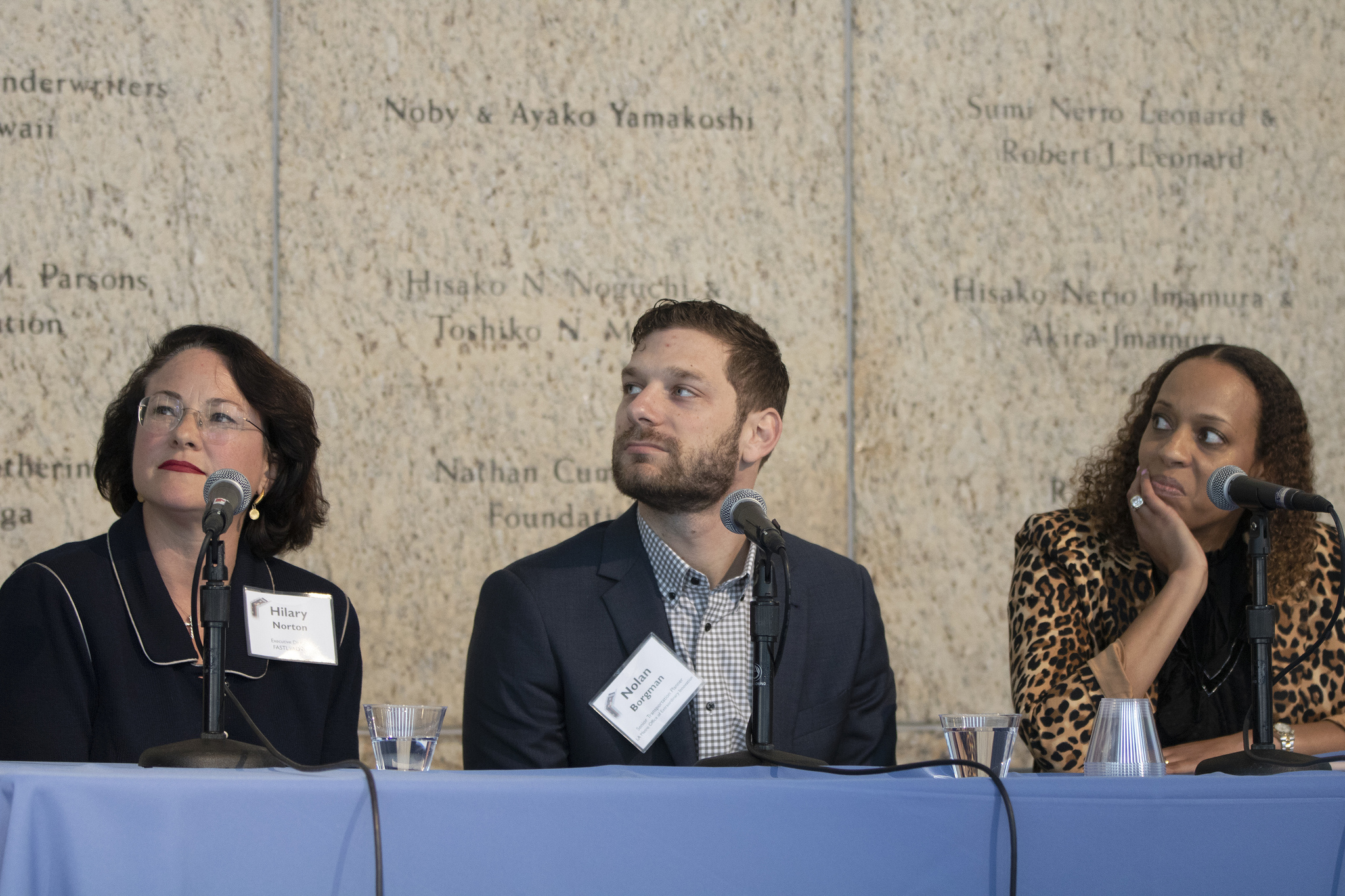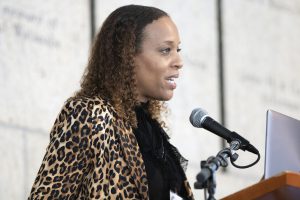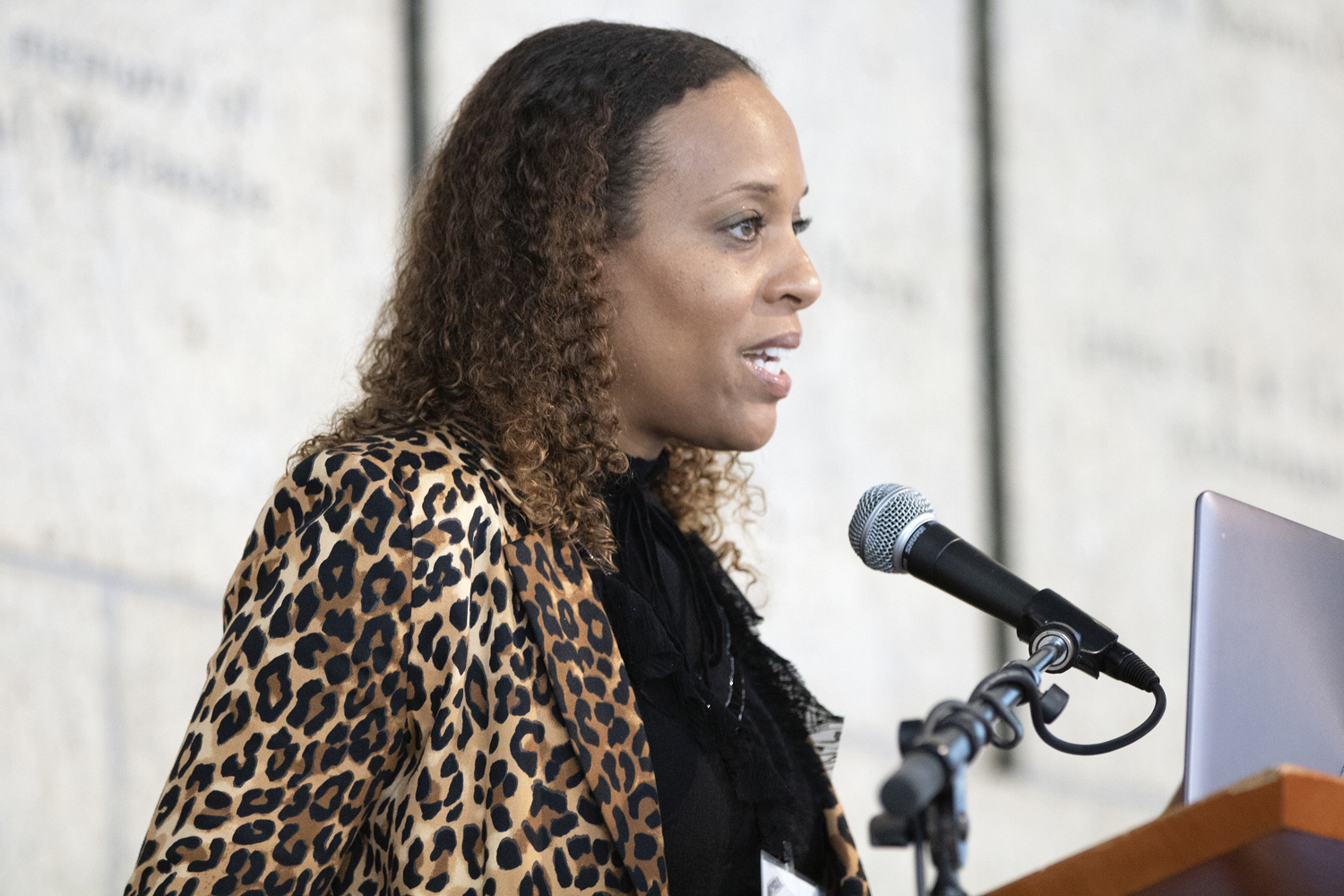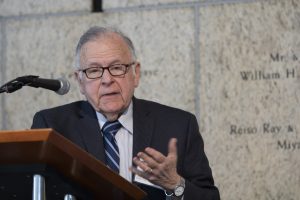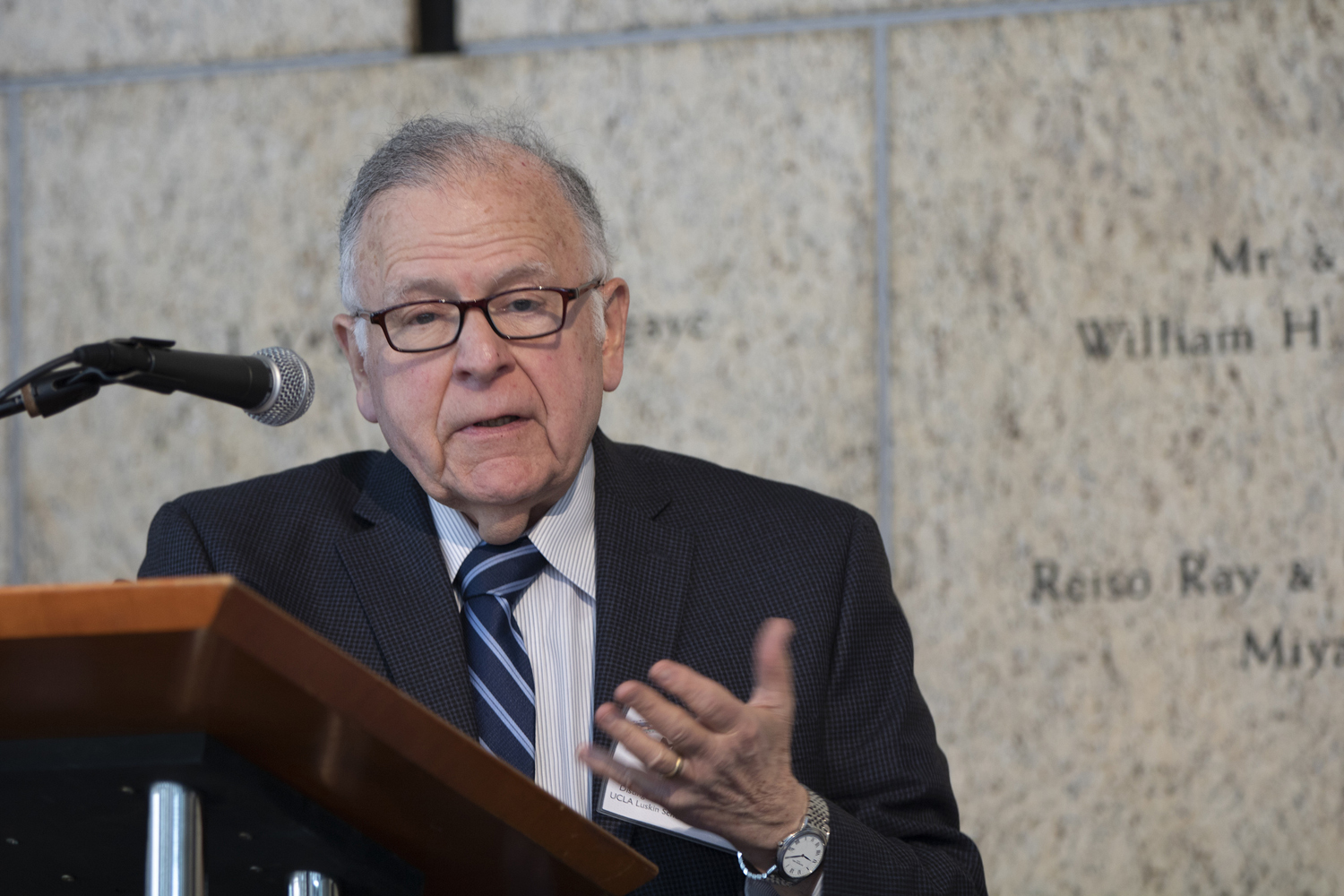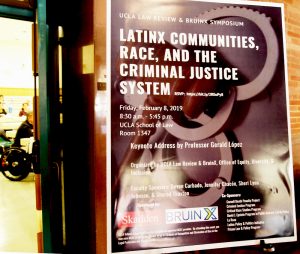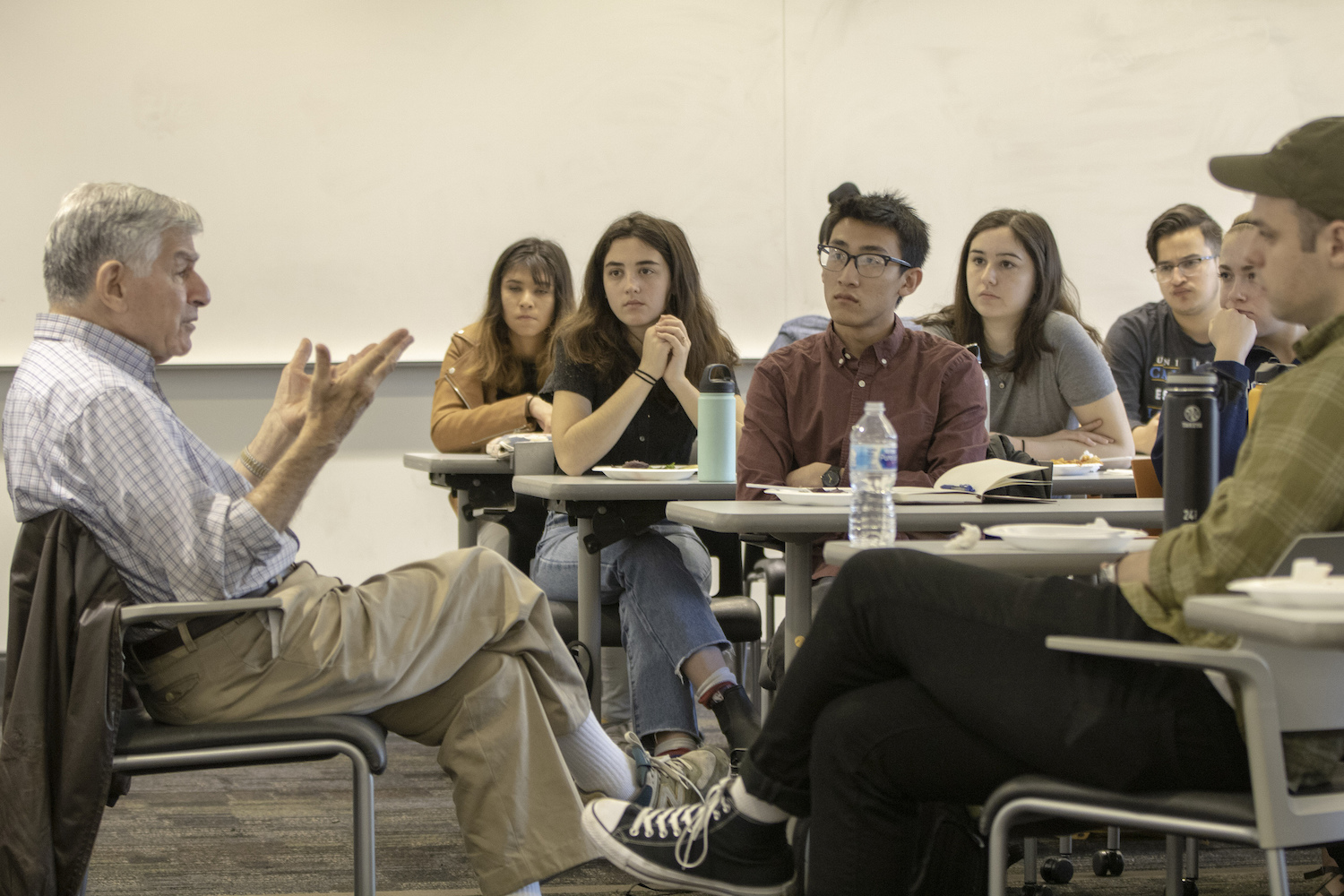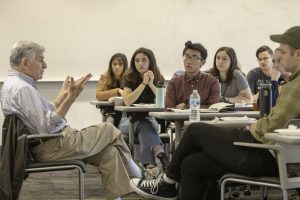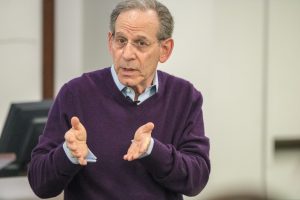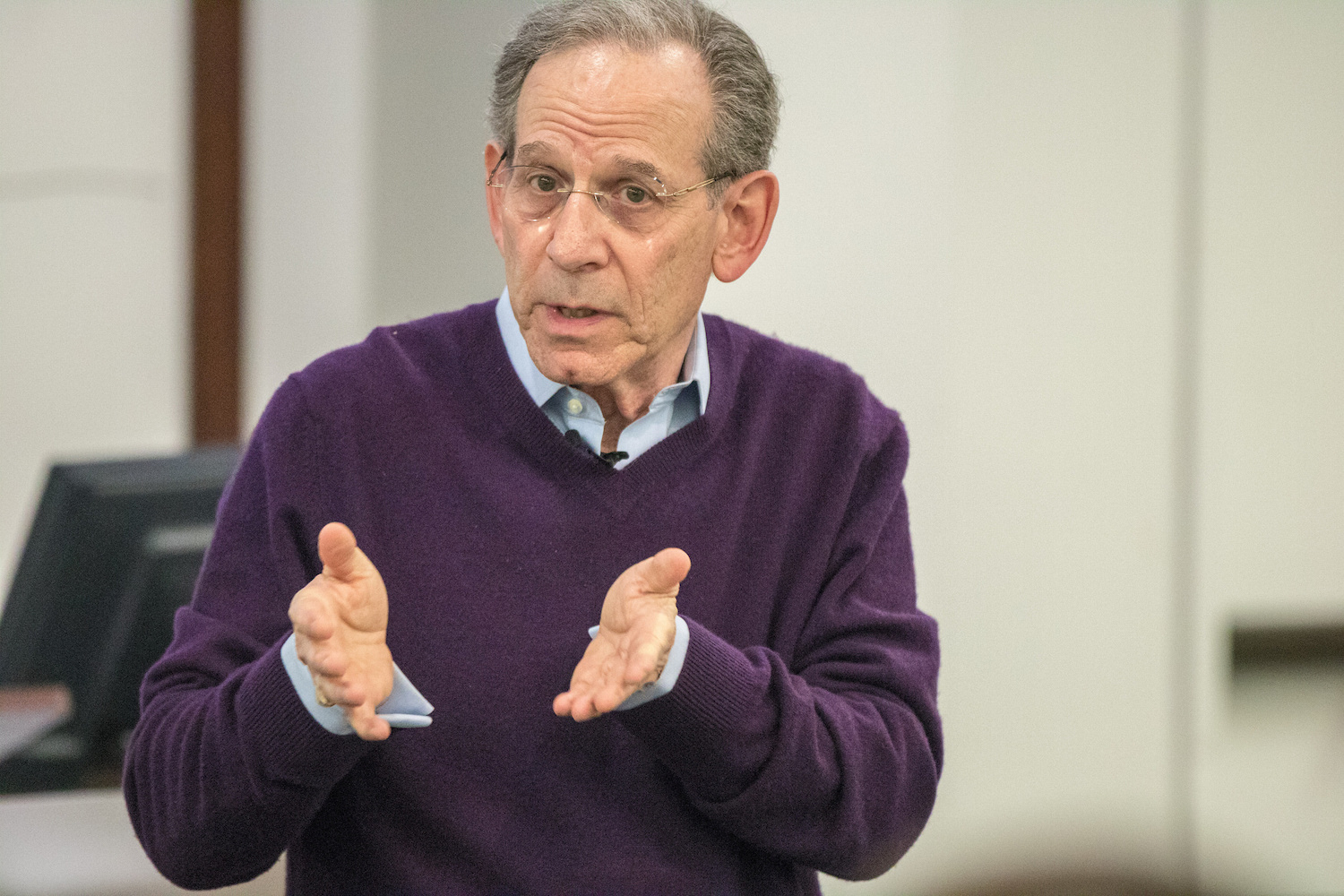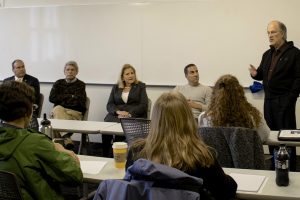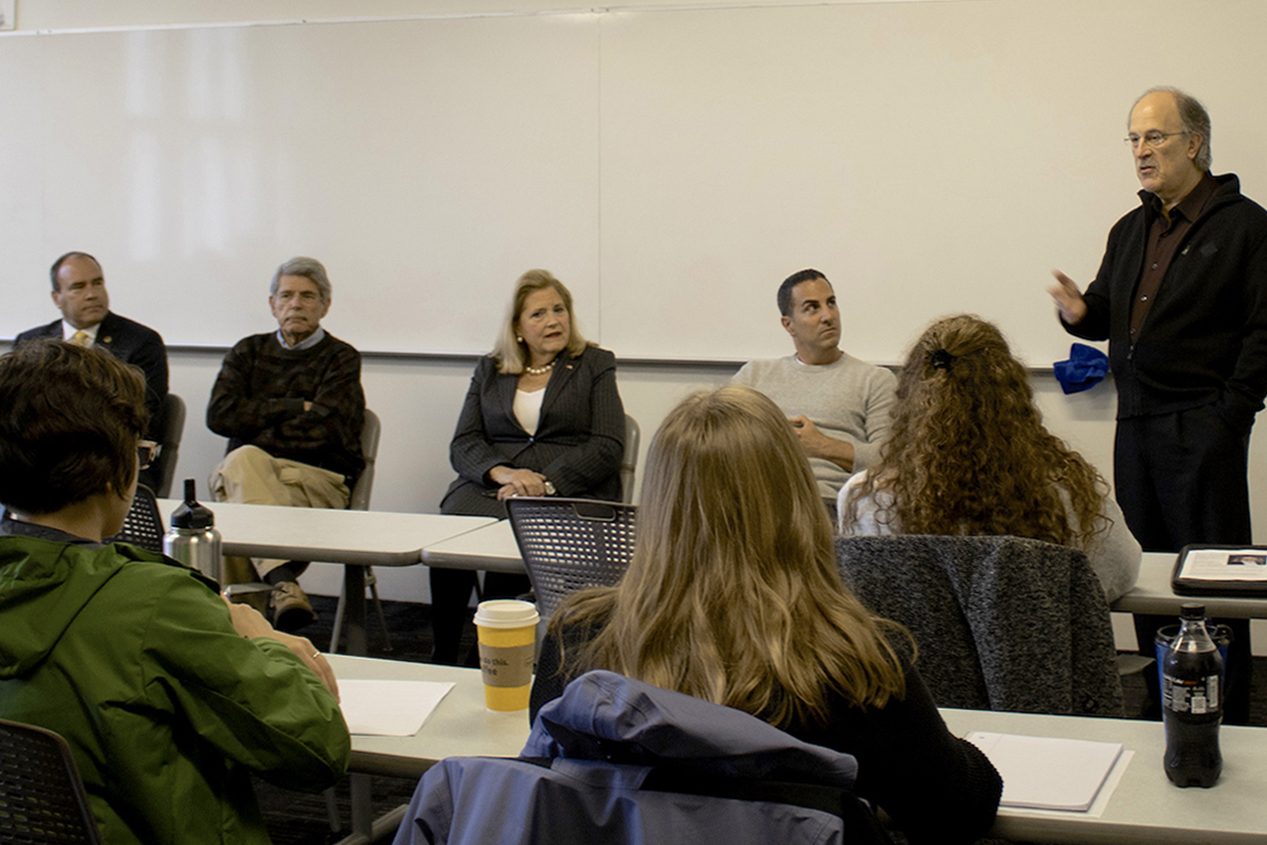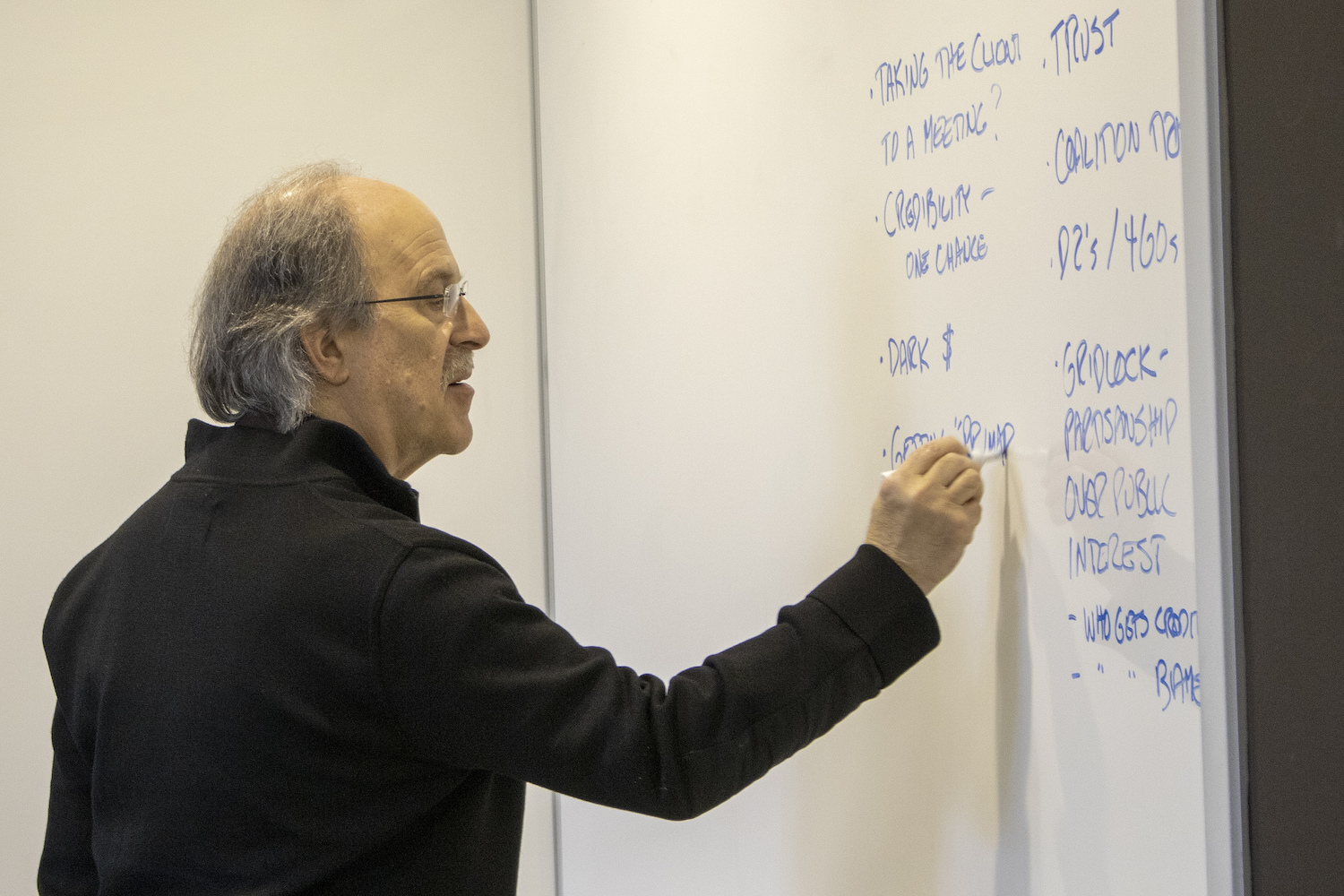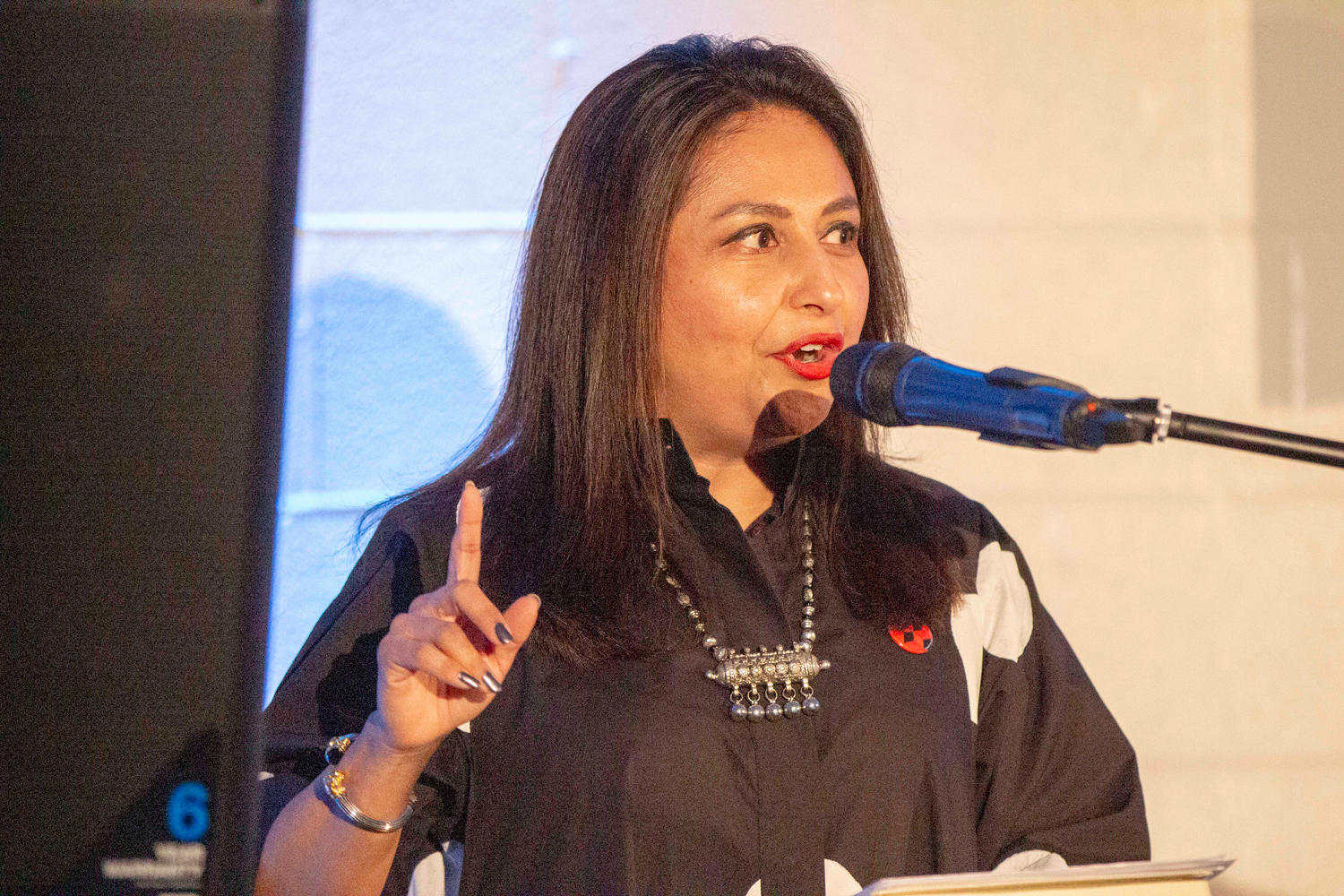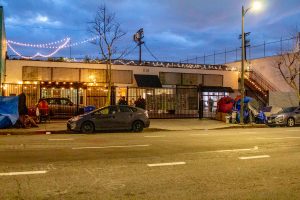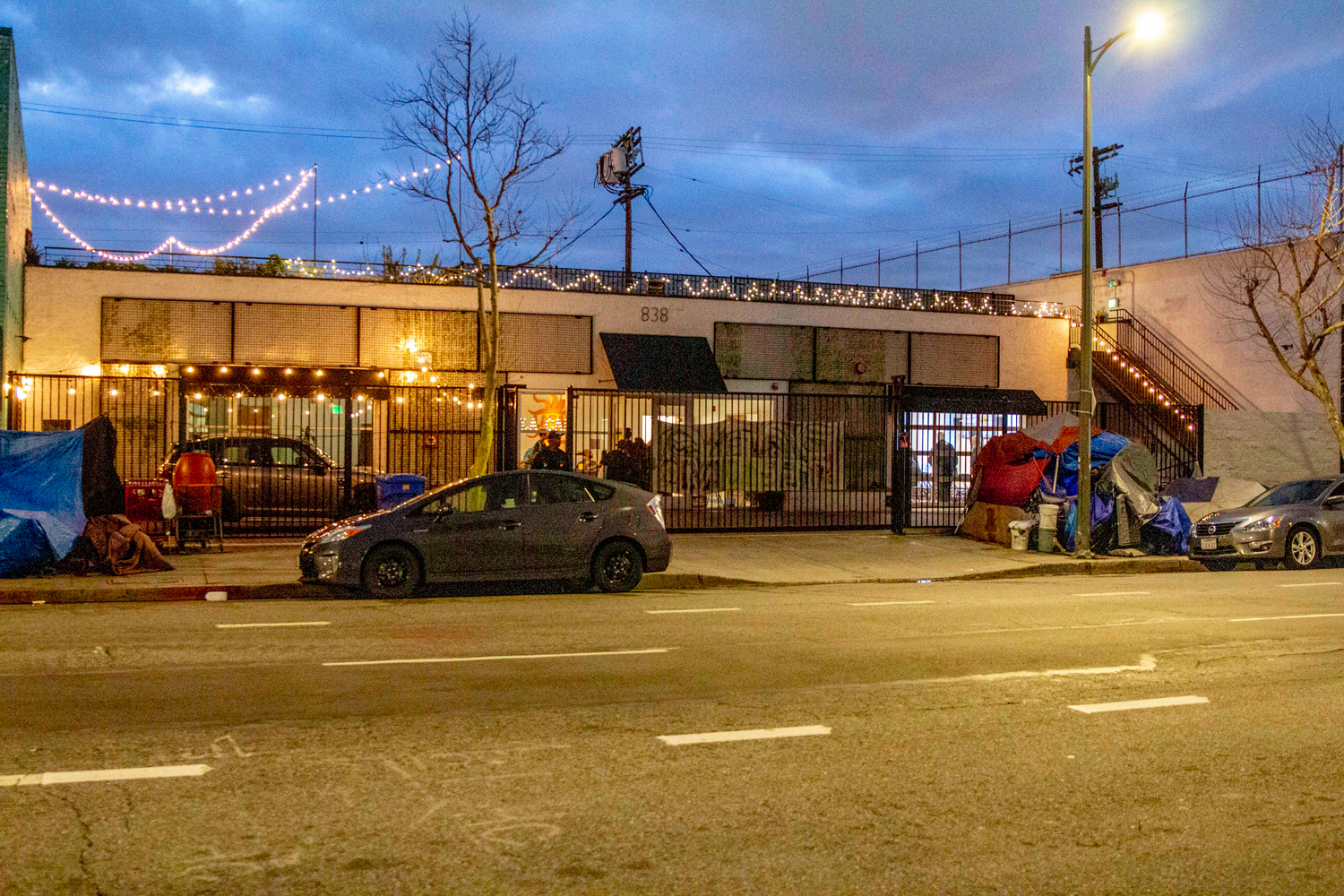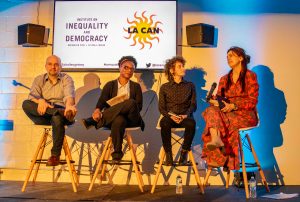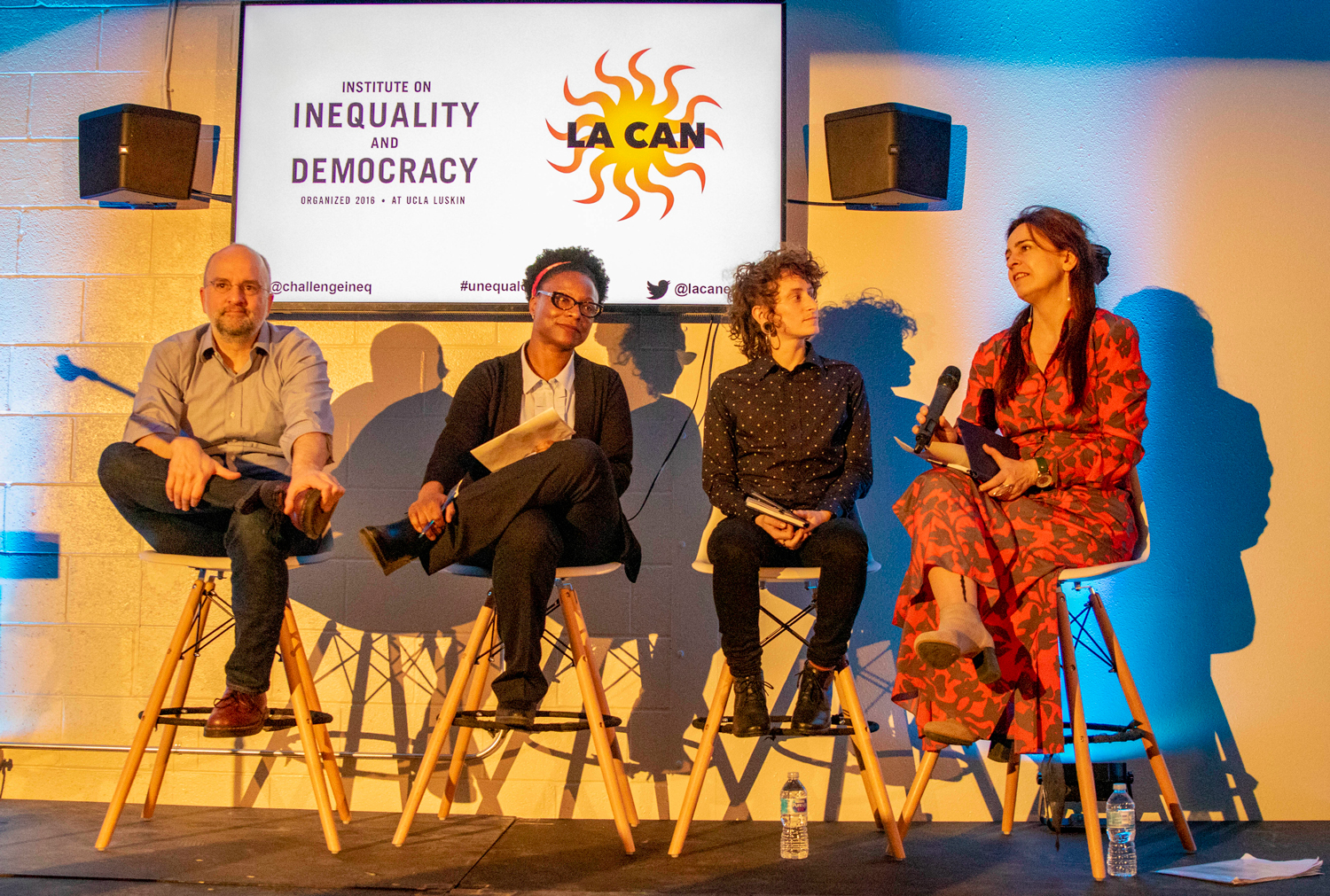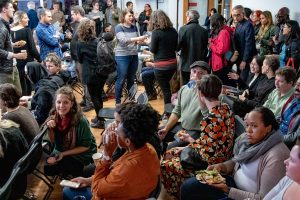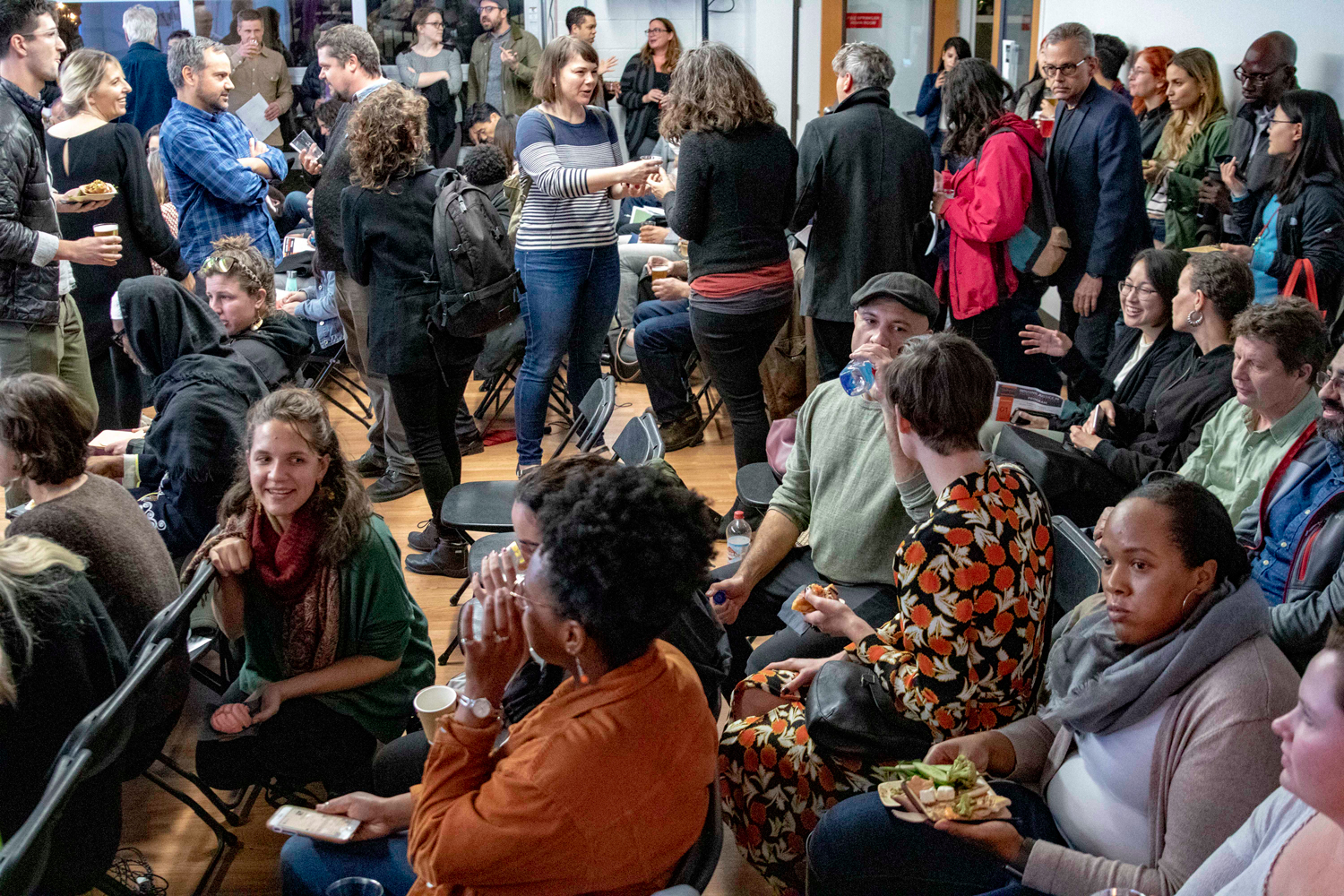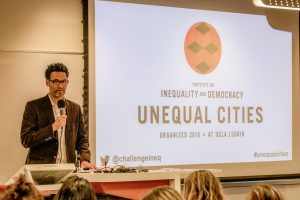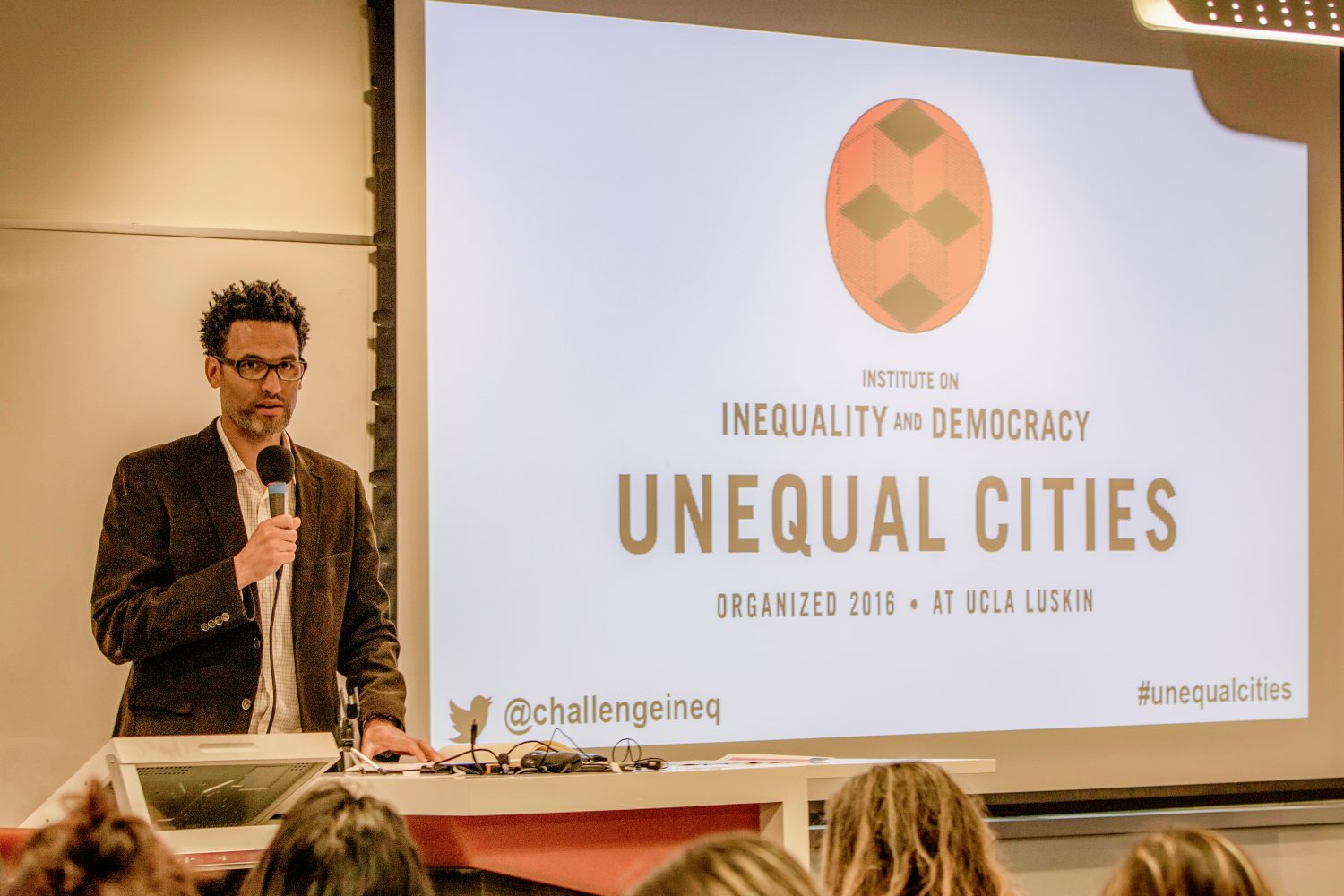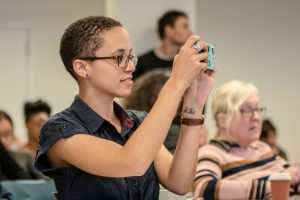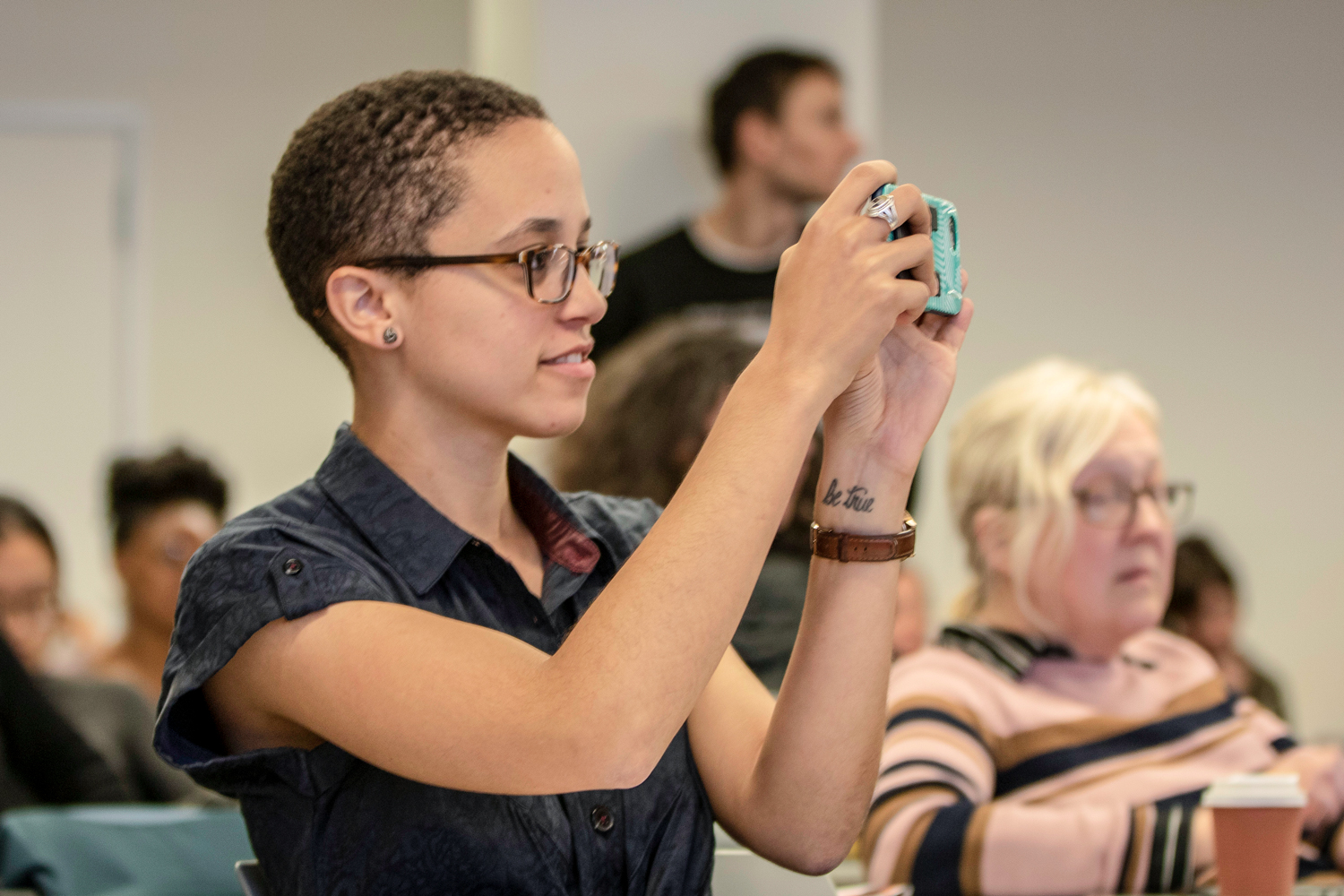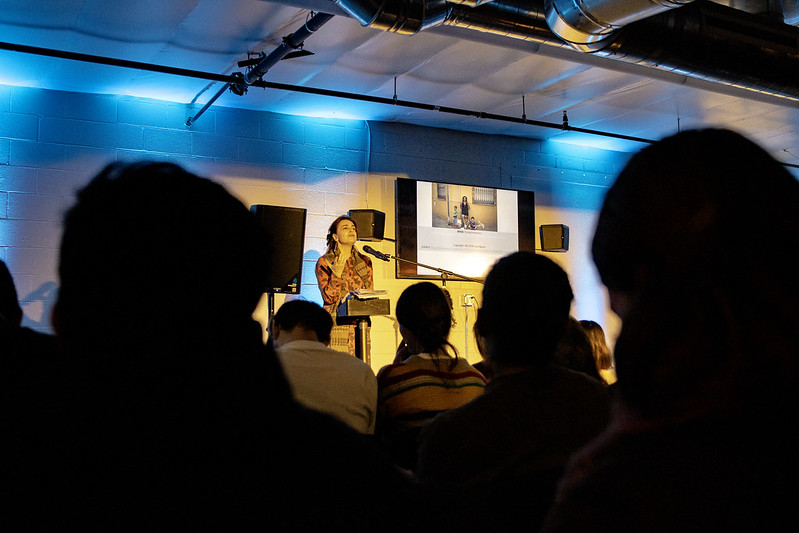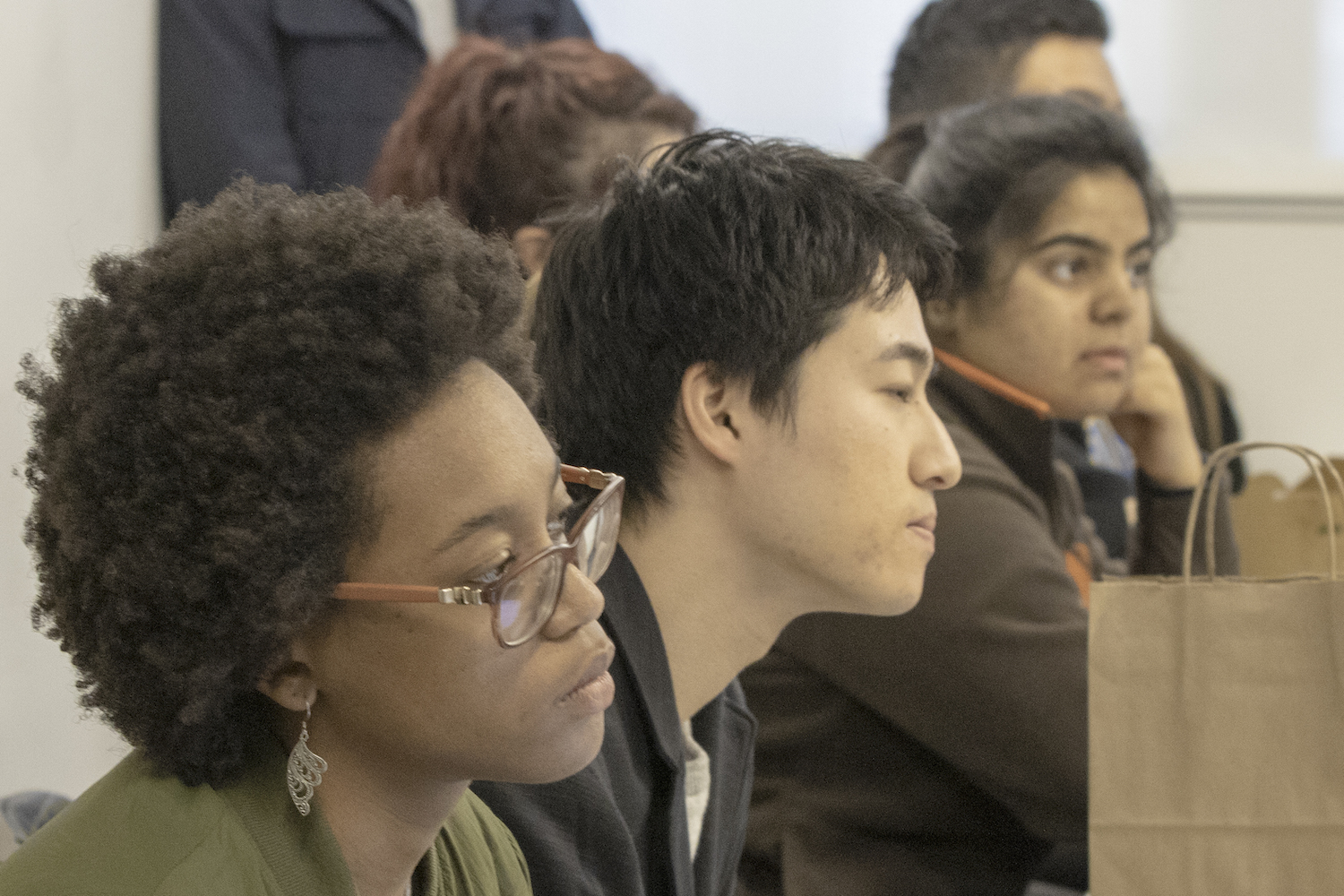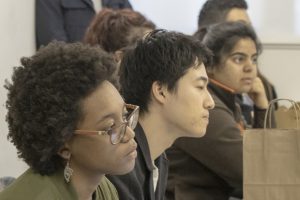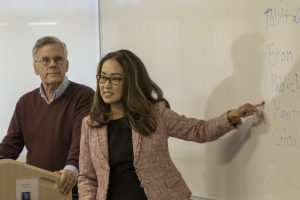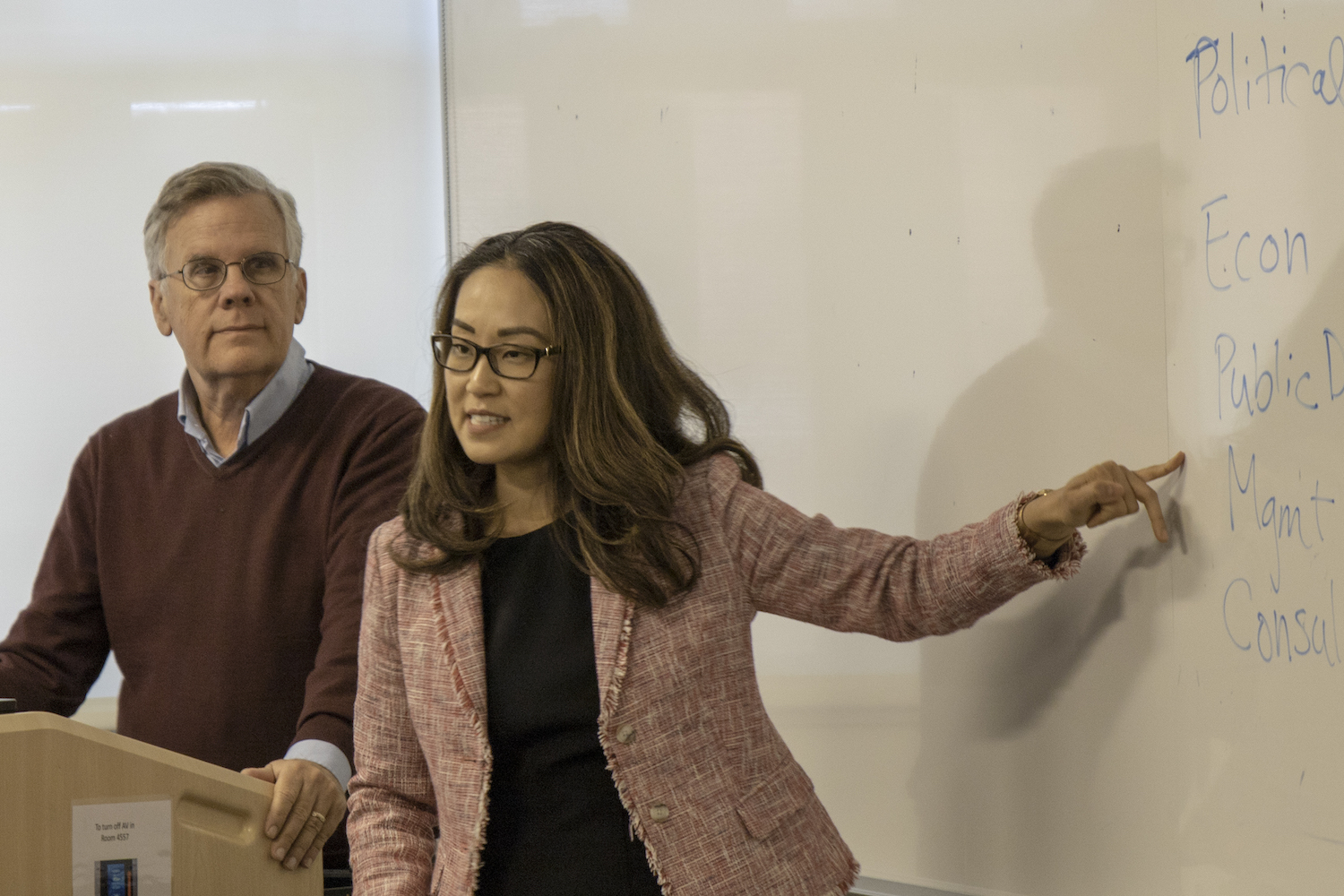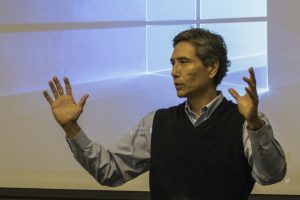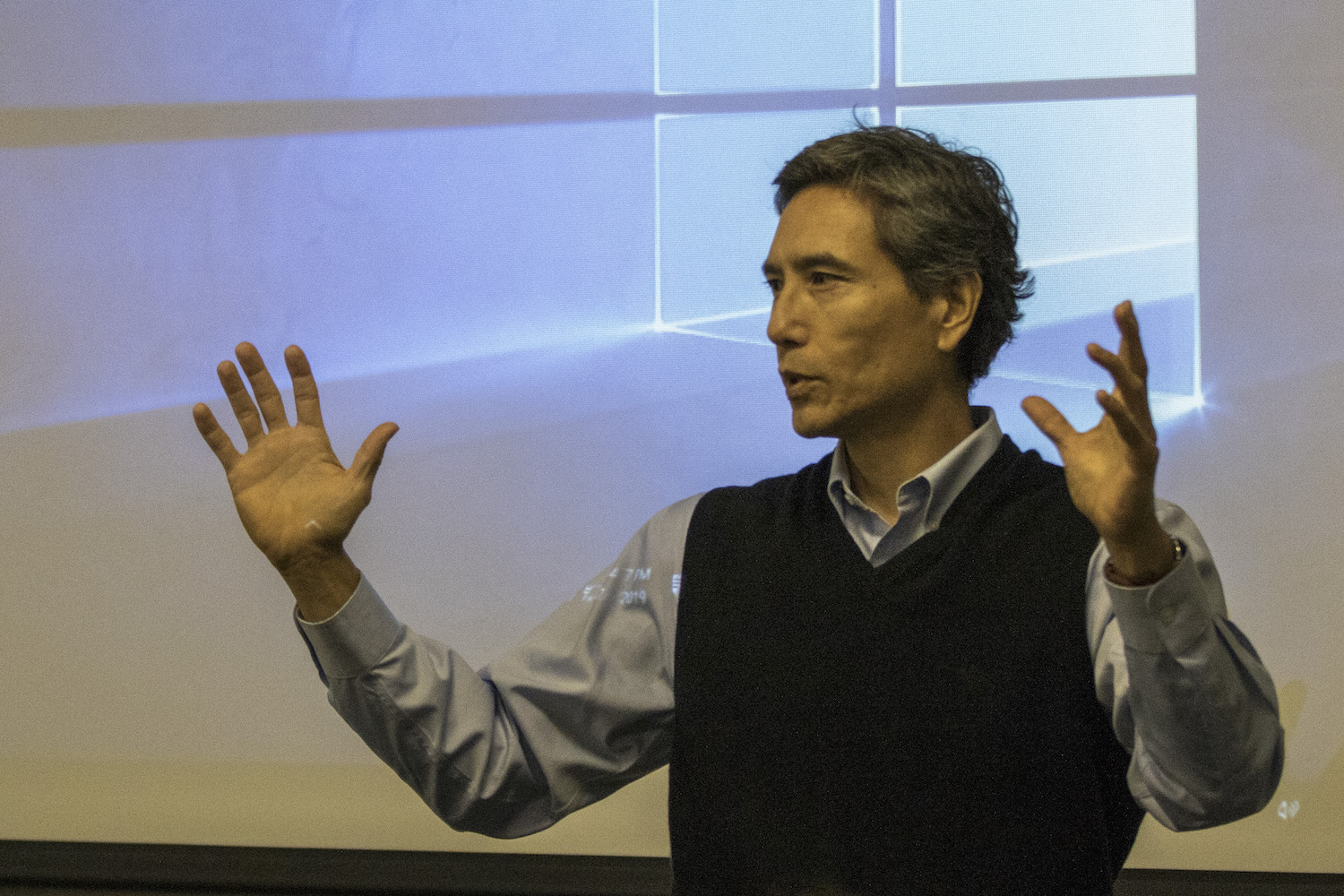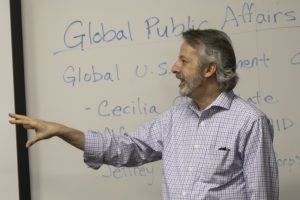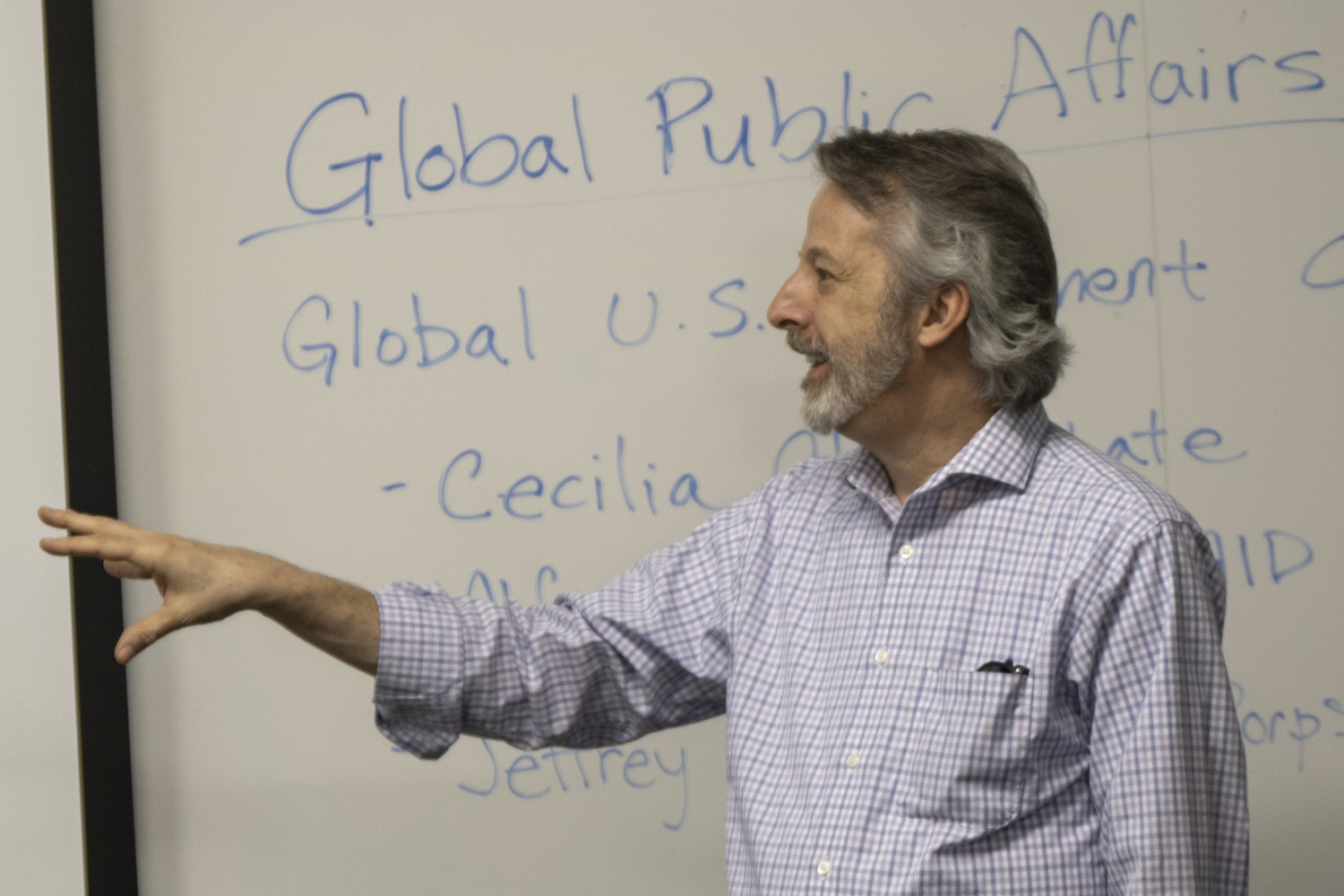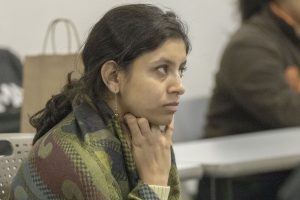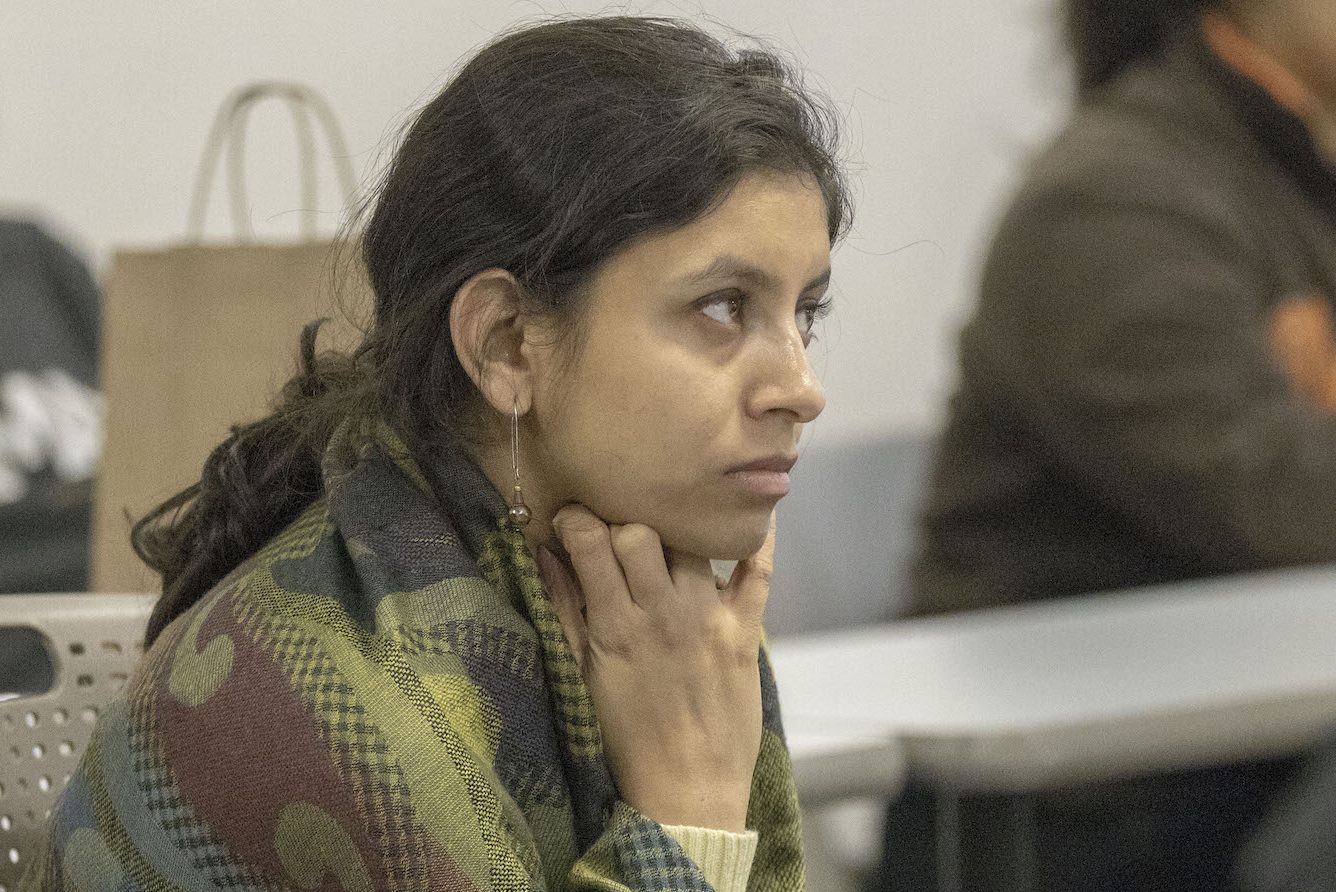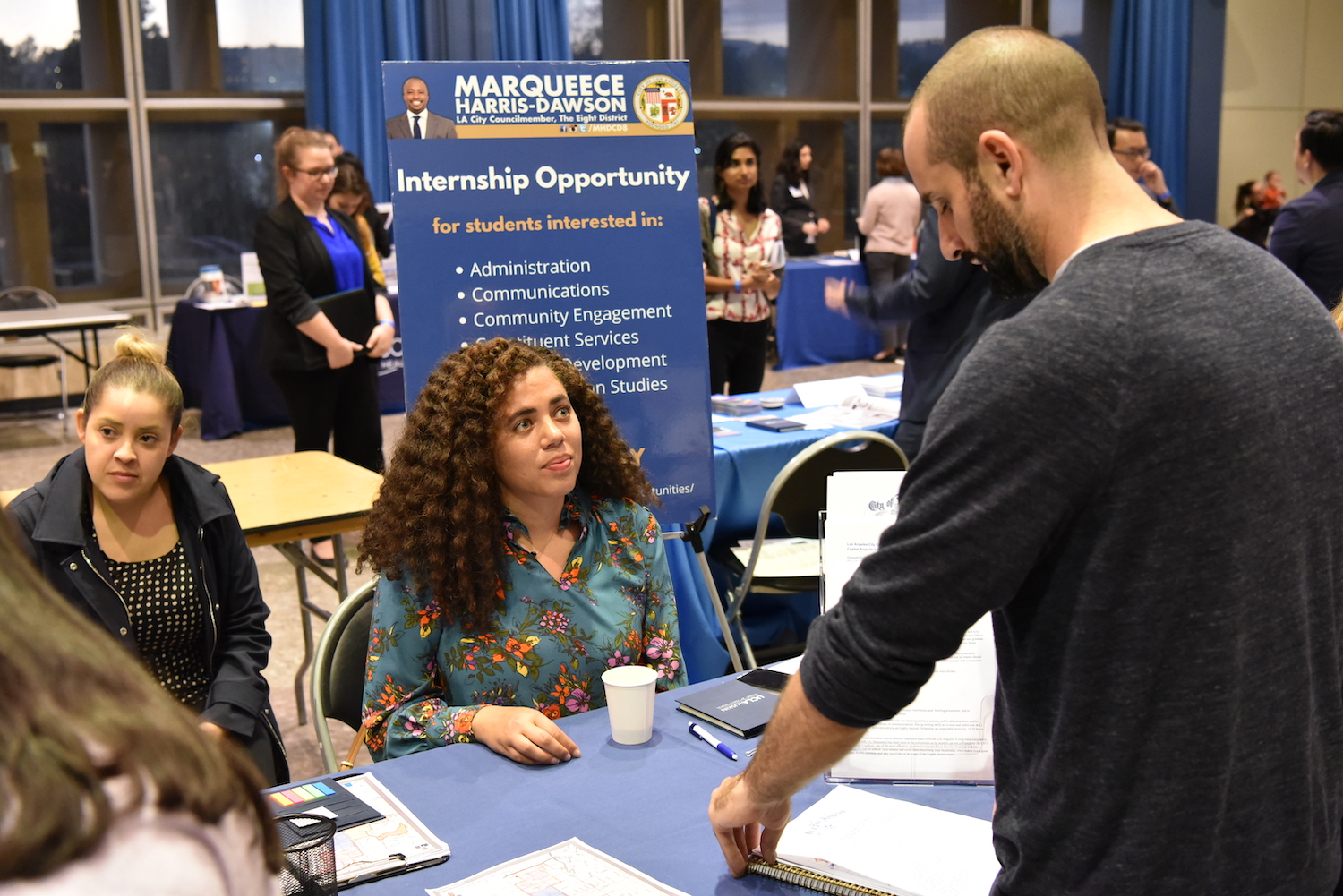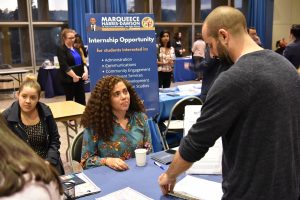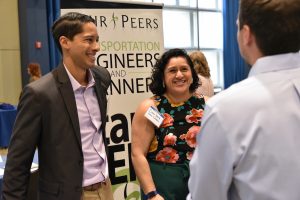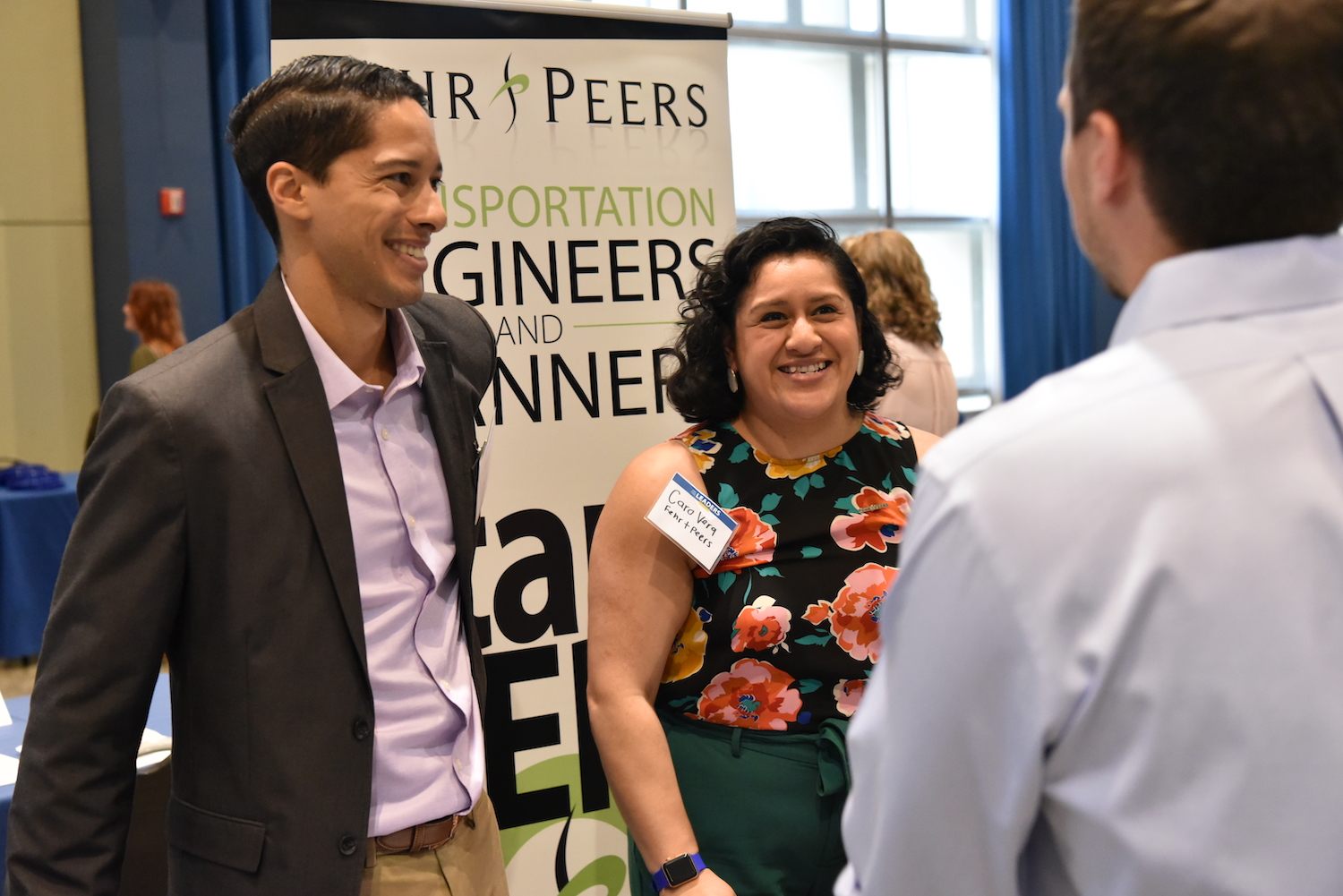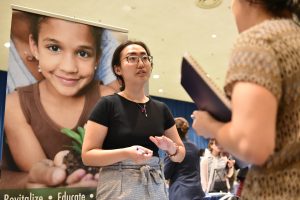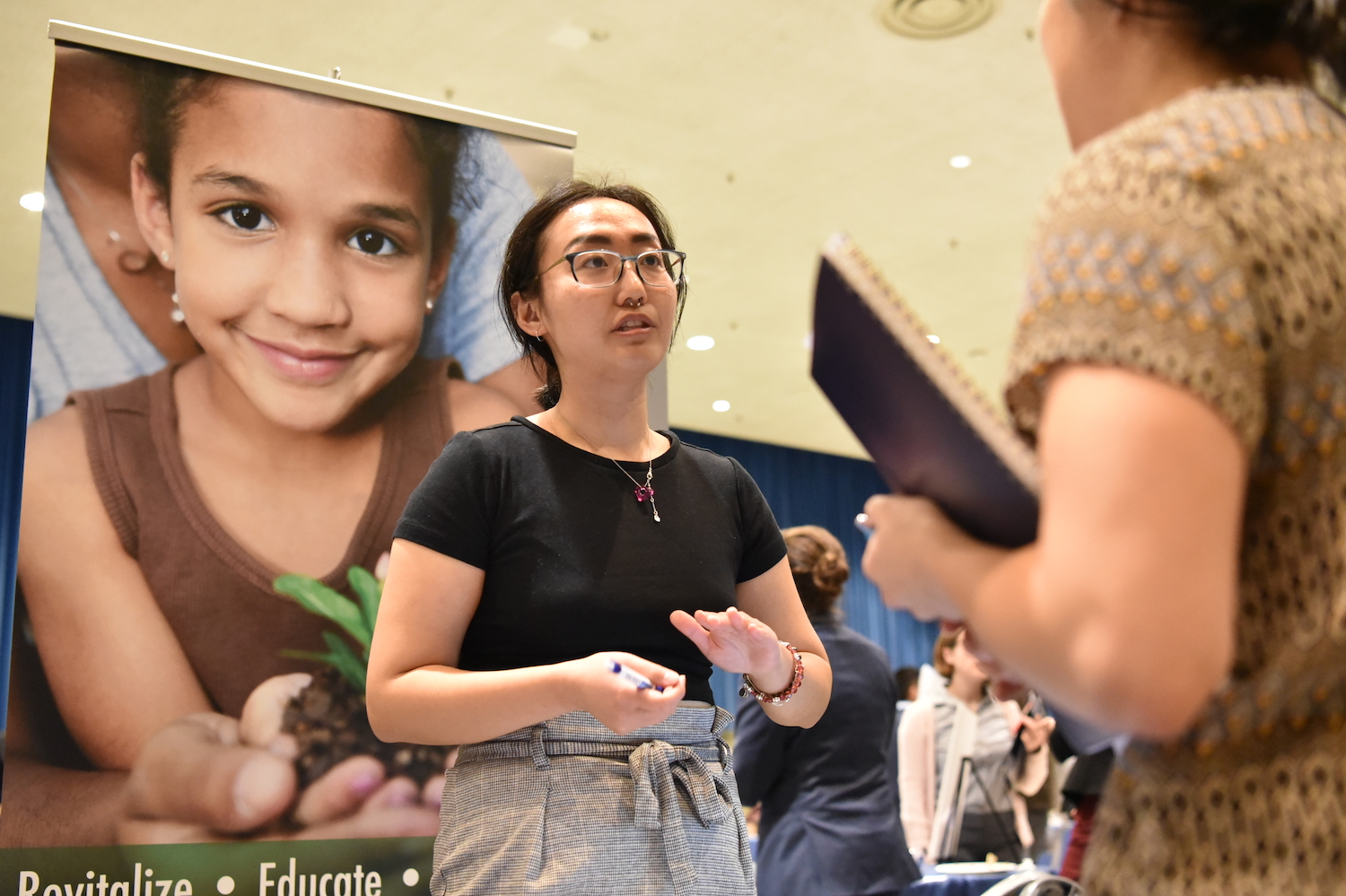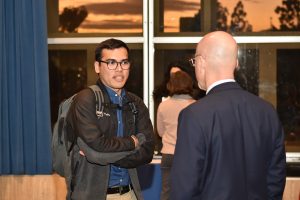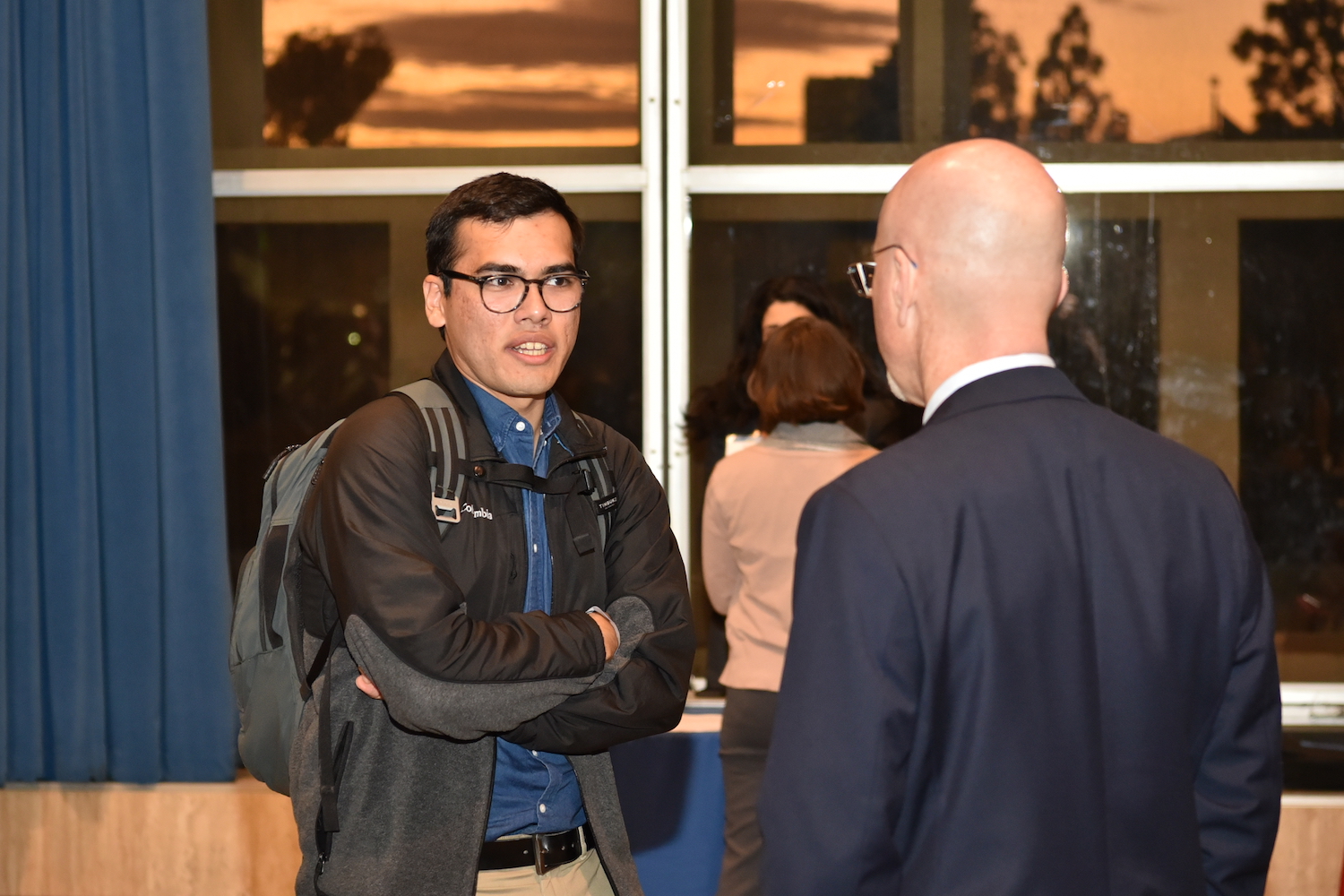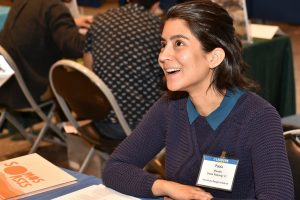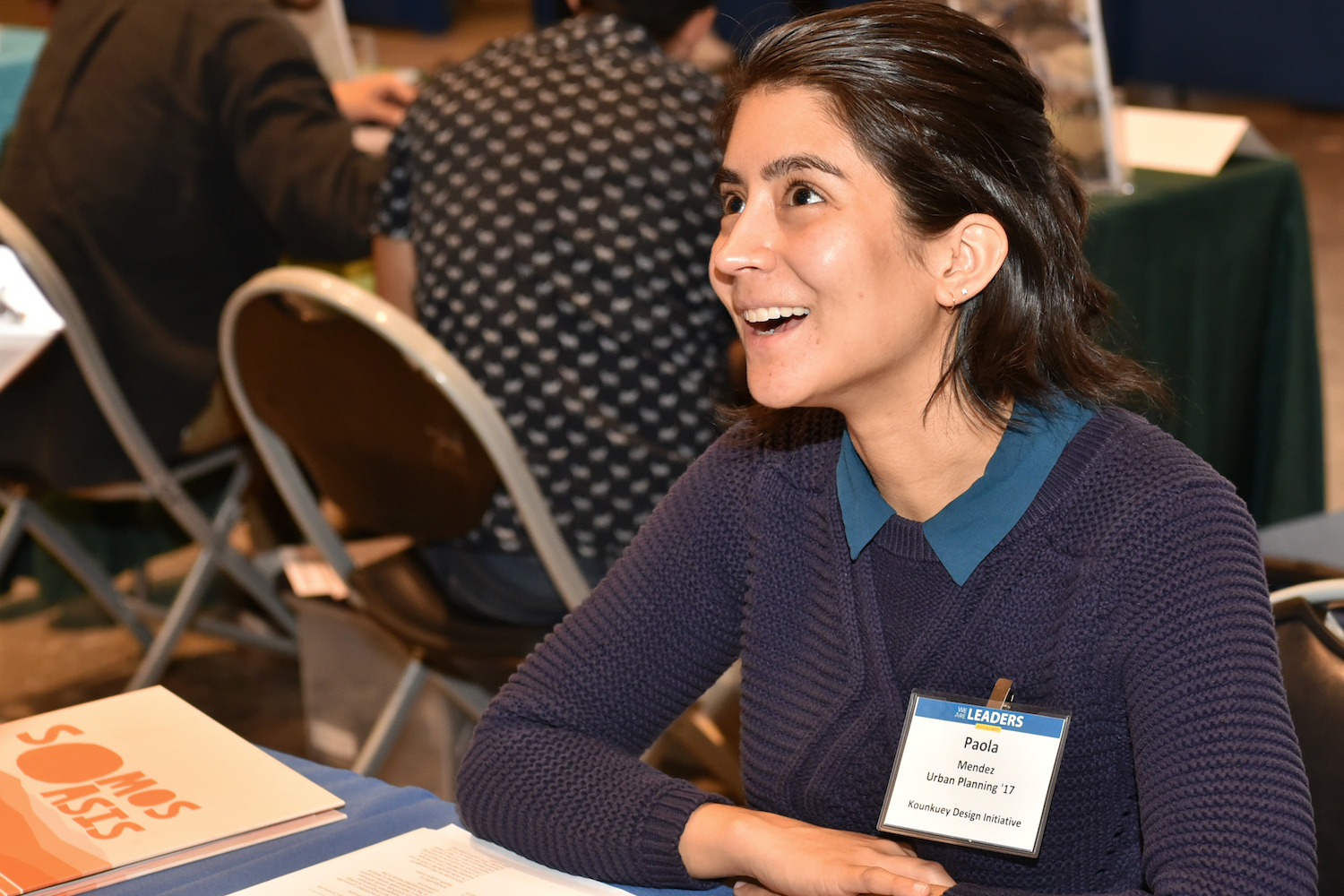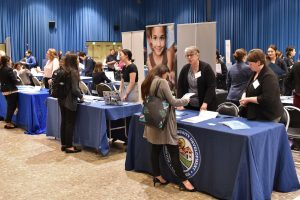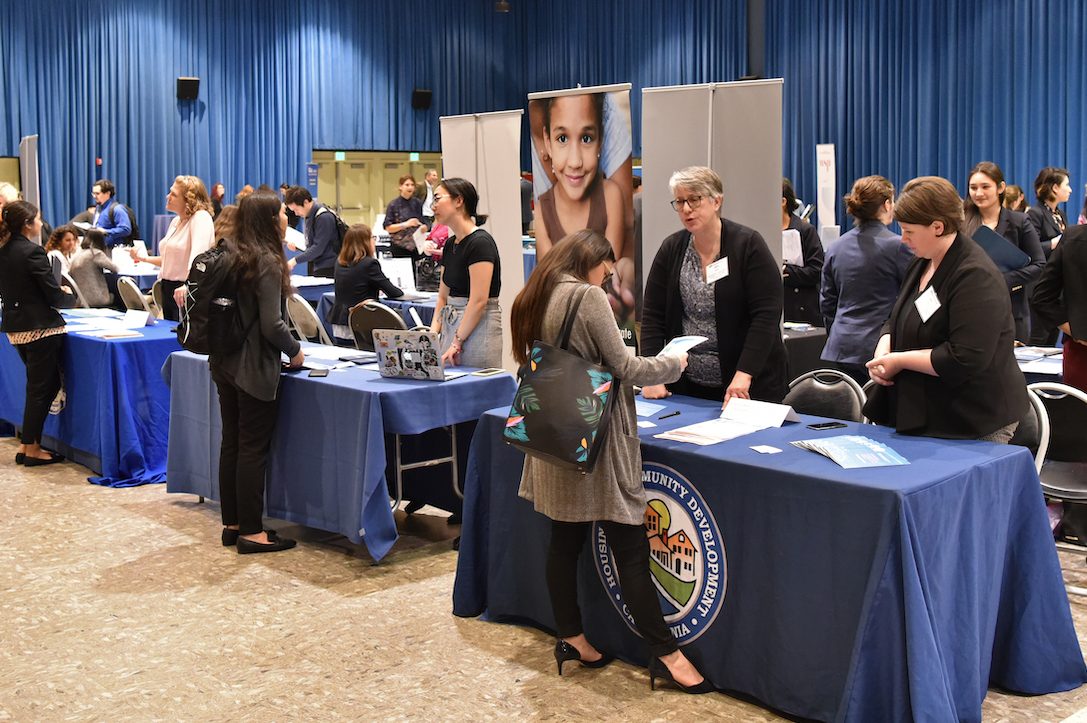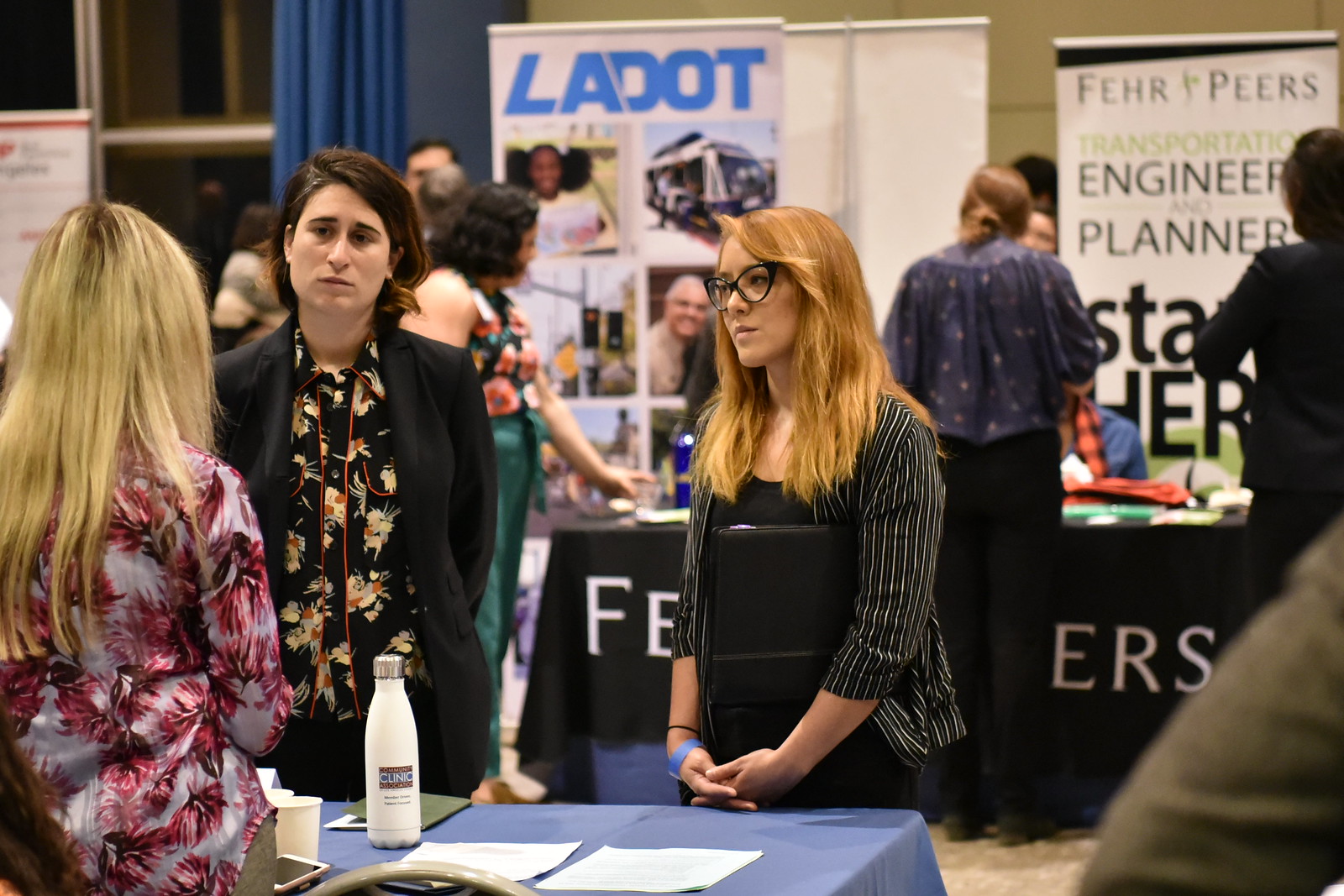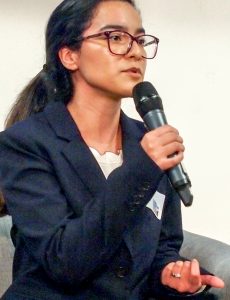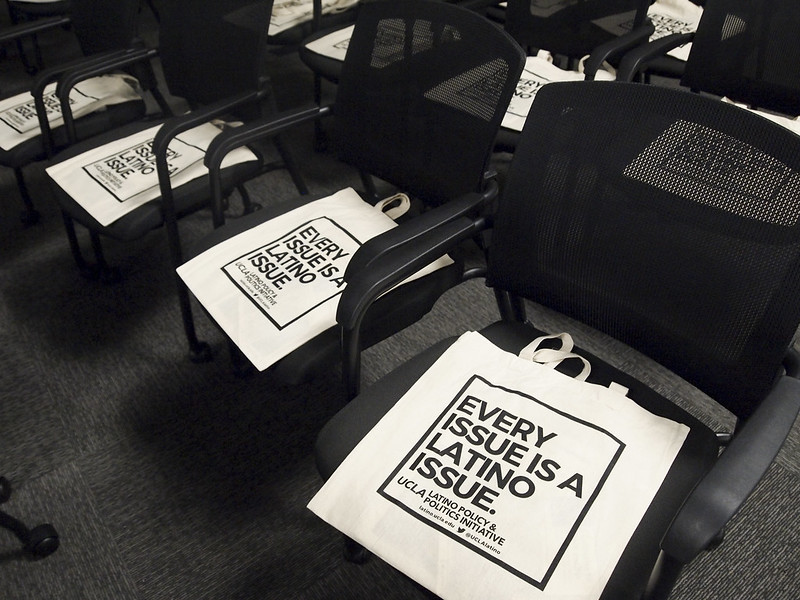Transit Forum Focuses on Impact of Mobility Innovations UCLA scholars join government, nonprofit and private sector representatives to discuss declining ridership in an era of emerging mobility services
By Claudia Bustamante
Across the country, public transit ridership has been declining.
But that isn’t the story in Seattle. Terry White, deputy general manager at King County Metro Transit, said that can be attributed to the agency’s community efforts.
Speaking at the UCLA Institute of Transportation Studies’ 12th annual Downtown Forum on Transportation, Land Use and the Environment held March 1, 2019, at the Japanese American National Museum, White said an organization that doesn’t reflect its community will lose trust.
“We’ve been making a concentrated effort that the folks that make up our outreach and leadership teams reflect the communities we go out and serve,” White said. “I don’t think it’s an accident that we have better relationships since 2014.”
King County Transit, which most recently won the American Public Transportation Association award for outstanding transit system, makes more than 400,000 trips per day and has seen all-time-high ridership as more people move into the Seattle area.
Joining White at the forum were UCLA scholars, and government, nonprofit and private sector representatives who share other real-world examples of how to tackle declining transit ridership, especially in an era of emerging mobility services.
The forum focused on successful public-private partnerships that could fill gaps in transportation services. Other topics included effective uses of data to manage mobility, practical innovations that can yield great gains for transit ridership, and how new mobility technology and services can enhance equity and quality of life.
Speaking specifically to how a big-city transportation department can put equity first was Ryan Russo, director of Oakland’s Department of Transportation, which was recently formed as a new model of urban mobility centered around progressive policies that aim to recognize and address past injustices.
Russo said the Bay Area city’s legacy of redlining is still seen and felt throughout the area, which means that departmental projects must be considered through an equity lens. Dedicated monthly meetings are held to strategize ways of infusing equity into projects. For example, Paint the Town combined community art and traffic safety through street murals.
For every project approved in less disadvantaged communities, at least two were approved for low-income neighborhoods.
“Transportation and street management isn’t about getting people from A to B,” Russo said. “It’s the way we will serve our community.”
Partnerships and Pilots
In light of the proliferation of private mobility companies, the forum discussed different ways the public sector could partner with these companies to meet transportation needs.
One example came from HopSkipDrive, a ridehailing service for school-aged children, which partnered with Los Angeles County to provide free rides to foster youth. Under the Every Student Succeeds Act, foster youth were provided core protections for school stability, meaning that districts need to provide transportation to keep these students in their schools of origin. Many foster youth bounce from school to school, and they graduate at far lower rates than do their peers.
“We are not meant to replace school bus companies. We are designing our systems to ride alongside school buses and existing transportation systems. That way we can provide mobility opportunities and access for all kids,” said Qiana Patterson, senior director of public partnerships.
In fact, finding innovative ways to partner with the private sector to tackle the biggest transportation issues of the day is something that Metro has been doing through its Office of Extraordinary Innovation.
Its unsolicited proposal process has yielded more than a dozen contract awards and proofs of concept for key projects, including the Sepulveda Transit Corridor, a gondola to Dodger Stadium, mobile tolling and bus electrification.
“The public sector is reluctant to admit they have a problem,” said Nolan Borgman, Metro senior transportation planner. “You need to admit that there is a problem that you don’t know how to solve.”
In Santa Monica, the goal of reducing greenhouse gas emissions, along with the rise of electric scooters, drove city officials to authorize a pilot program to offer more mobility choices and gain a better grasp on the use of shared public space.
Declining ridership has also forced many public agencies to adopt innovations to improve transit.
In Everett, Massachusetts, a pop-up bus lane is being utilized to improve mobility and connections to major nearby destinations like Boston. Instead of conducting traditional outreach, City Planner Jay Monty said a pilot project incorporated outreach and gleaned real-time public feedback. The part-time lanes only for buses went quickly from pilot project to a statewide model, and today more than a dozen similar Tactical Transit Lane projects have sprung up across the country as a means of improving mobility.
Disruption
Associate Professor of Urban Planning Michael Manville said that neither new trains or lanes free up space on roads over time. What has worked — where it has been implemented — is congestion pricing.
Speaking to the fairness and equity concerns that come up when congestion pricing is discussed, Manville said that not only was the entire transportation system financed regressively through gas taxes, sales taxes and registration fees, but pricing access to roads could produce revenue to offset the costs for low-income individuals.
“Congestion harms people who live in low-income communities with disproportionate low vehicle ownership,” Manville said. “They have to bear the higher health and pollution burdens of driving, which leads to higher rates of preterm births and other negative health outcomes — and thus inheriting poverty.”
Earlier this year, Metro decided to move forward with a two-year study of congestion pricing, evaluating different pricing methods, including per-mile charges and tolls in specific areas.
Even though all the new mobility options may make it seem otherwise, we are not living through a particularly disruptive period of transportation, said Martin Wachs, emeritus professor of urban planning at UCLA Luskin. People have long been using the same language to describe new mobility — from bicycles and jitneys in the 19th and 20th centuries to today’s ridehailing companies like Lyft and Uber, as well as electric scooters.
Instead of reacting to technology, Wachs said, agencies should create policy that builds upon the capacity of innovation.
